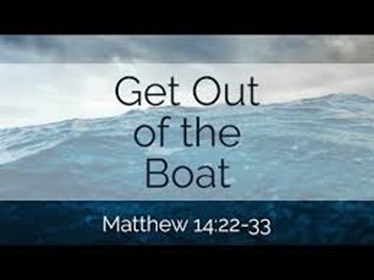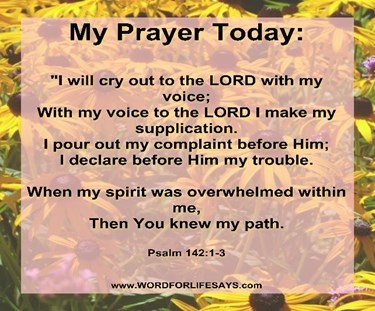Sunday 9th August 2020
9 Aug 2020 by O'Connor Uniting Church in: ReflectionsPentecost 10
Bible Readings
First reading: Genesis 37:1-4,12-28
Psalm: Psalm 105: 1-6, 16-22, 45b
Second reading: Romans 10:5-15
Gospel: Matthew 14:22-33

I'm fascinated by that first step of Peter as he climbed over the side of the boat. He was looking at Jesus, not at the water. His mind was charged with Jesus' invitation: /Come/.
So often the way out of depression, fear or anxiety is not a thought or a consideration, but a physical step. I take a risk, and find myself strong enough to walk forward, keeping my eyes on the Lord.
https://www.sacredspace.ie/scripture/matthew-1422-33

Pastoral Letter from Rev Andrew Smith - Presbytery Minister - Congregation Futures
What it Could be Like – Pastoral Care in COVID Times
During these COVID restrictions it has been all hands-on deck for my congregation. It was clear from the outset the we couldn’t leave it up to our minister. She had been taking the main lead in organising worship. Now she was flat out getting up to speed with technology so that we could move to online worship services. In the past we have also relied on her to head up the pastoral care. Sure, we have elders who were helping with pastoral care. I am one of them. I say “helping” because we left most of the initiative for pastoral care to our minister. People in my congregation have this attitude that a pastoral visit or call is a real pastoral visit or call only if the minister does it. We’ve tried to change this attitude, but it has been really hard to shift. So, often we have fallen back to letting it be the minister’s job.
Well there is no way that it could stay like that during this COVID time. I said it has been all hands-on deck, and that has certainly been the case with pastoral care. Previously when we could gather in person on Sunday mornings for worship, I think we assumed that somehow a fair bit of the pastoral care just happened by the mere fact of us being together, having conversations and sharing a cuppa after the service. Without the physical gathering we could no longer assume that.
Now we needed all the elders, plus others, to join in caring for our congregation in a very organised way. First, we listed out those people who could not join in the zoom worship services. We were able to help some of them figure out how to use zoom. For the others we made it a priority to deliver weekly written worship resources to them by email or by post or hand delivering them. In addition, we made sure there was a person calling them once a week to check in on how they were going. That person also invites conversation about the worship resources from the previous week, so that there continues to be a sharing of faith. I reckon this has been one of the best parts of this new way of doing things. All of us are having so many more faith conversation with each other when previously we talked mostly about sport, work, holidays, kids and grandkids.
We’ve also been mindful of the people in our congregation for whom it was that bit more important to be gathering as part of their overall wellbeing. Even if they have been tuning in to the weekly zoom service, we’ve been making one other weekly contact with them. At first that was just by phone, but as restrictions eased a bit, some have been meeting up at local cafes. Again, those weekly worship resources have been a part of the conversations.
The young families have been doing it tough during this time as well, particularly when schooling went online and the parents were trying to work from home. From a worship perspective, the kids were not engaging in the zoom services. So, as we have started to regather for worship, we’ve given priority in the limited places to the young families and those people whose wellbeing is that bit more dependent on being together with others. We’ve got the children’s programs going again on Sunday mornings, even though that means having individual sets of craft for each of the children and wiping down all the craft gear at the end. It is so good to see them engaged and feeling a part of things.
I’m exhausted by all that we have been doing for pastoral care. Loving one another can be hard work. Even though I’m exhausted, I hope whenever COVID ends that we don’t go back to how it was before with pastoral care. These COVID restrictions have been a circuit breaker for that attitude I mentioned earlier about what constitutes a real pastoral visit or call. They have also forced upon us the space for elders and others to act more in pastoral care. There is a real chance that this time will bring about a culture change in my congregation for the better. One in which we are expectant of giving and receiving pastoral care with each other. One in which we are looking for faith conversations with each other. It can feel strange to speak of blessings from this time of COVID, especially when there has been so much suffering and death and economic hardship and stress. But if you are looking for blessings, I think these changes could be included.